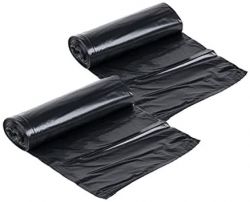Koreah
From Halachipedia
(Redirected from Tearing)
This is the approved revision of this page, as well as being the most recent.
This is the approved revision of this page, as well as being the most recent.
| This article is lacking content. |
Definition
- Separating any two objects that are glued or sewn together is considered an act of tearing, Koreah.[1] However, this is only an issue if they were attached with at least some permanence.[2]
- For example, it’s permissible to open an envelope or a booklet that was stapled shut just for transmission by post by removing the staples. However, it’s forbidden to remove the staples from two papers that were stapled together permanently.[3]
Separating pages of a book
- It’s forbidden to cut or rip pages of a book that were not properly cut through in binding. [4]
Toilet paper
- Toilet paper or paper towels may not be ripped along perforated edges or not along perforated edges on Shabbat.[5] Some say in a situation where there’s no other option it’s permissible with a shinui (such as ripping with one’s elbow). [6]
- According to Sephardim, one should really rip toilet paper before Shabbat, however if one didn’t then, it’s permissible to rip in order to wipe yet one may not rip on the perforations and preferably this should be done with a shinui (like with one’s foot).[7]
- Tissues or wipes that are slightly connected in order to facilitate that one tissues pulls out the next tissue or wipe out of the box, one shouldn't use these tissues or wipes on Shabbat.[8]
Practical Examples
- Regarding removing the plastic tabs from the band aid edges, see Medicine on Shabbat.
- It is permitted to separate the sides of a diaper from the back panel even though it is minimally connected since that wasn't connected intentionally or for a permanent connection.[9]
- It is permitted to open a garbage bag of which the folded edges are connected and perforated.[10]
Opening Mail
- It’s forbidden to tear or steam a letter open on Shabbat. It’s permissible to tell a non-Jew that it’s forbidden to open letters on Shabbat so that the non-Jew will understand to open it as this is not a command but only a hint. [11] Similarly, it’s permissible to benefit from the letter since the action of the non-Jew was applied to the envelope and not to the letter directly.[12]
- It’s permissible to open an envelope or a booklet that was stapled shut just for transmission by post by removing the staples. However, it’s forbidden to remove the staples from two papers that were stapled together permanently. [13] Similarly, it’s forbidden to staple an envelope closed.[14]
Related Pages
Links
- Hilchos Shabbos Koreia-Tearing by Rabbi Zvi Sobolofsky
- Article on The Melacha of Tearing on Shabbat by Rabbi Josh Flug
Sources
- ↑ Shulchan Aruch 340:14
- ↑ Mishna Brura 340:45
- ↑ Shemirat Shabbos KeHilchata 28:5
- ↑ Shemirat Shabbat KeHilchata 28:1. Biur Halacha 340:14 s.v. vechayav because of koreah and metaken.
- ↑ Mishna Brurah 340:41 writes that ripping toilet paper in order to wipe is forbidden (Deoritta) as Kore’ah. This is also the opinion of Shemirat Shabbat KeHilchata 9:25, Or Letzion 40:6, Orchot Shabbat (vol 1, 11:21), and Shalmei Yehuda (10:9, pg 171) in name of Rav Elyashiv
- ↑ Orchot Shabbat (vol 1, 11:22; 353) quotes Rav Elyashiv who holds that in a situation where there’s no other option it’s permissible with a shinui (such as ripping with one’s elbow). See Sh”t Tzitz Eliezer 11:30
- ↑ Yalkut Yosef (Shabbat vol 5, pg 146) in name of Rav Ovadyah Yosef, Sh”t Chelkat Yacov 3:123, Sh”t Hillel Omer 199
- ↑ Rav Willig (min 39) quoting 39 Melachos p. 842 because of the issues of koreah and makeh bpatish. Brit Halevi 2:58 agrees.
- ↑ See Template:Diapers_on_Shabbat for sources.
- ↑ Halacha Sheleimah Shabbat 2:20 explained that it is permitted to unfold a garbage bag with perforated folds because he investigated with companies who said that those folds were only created incidentally while they were packaged. He compared it to diapers which are connected on the top between the side edges and back panel. Either way, it is permitted since it wasn't connected intentionally or it is only a temporary connection.
- ↑ Shemirat Shabbat KeHilchata 30:2
- ↑ Shemirat Shabbat KeHilchata 30:57
- ↑ Shemirat Shabbat KeHilchata 28:5
- ↑ Shemirat Shabbat KeHilchata 28:5

